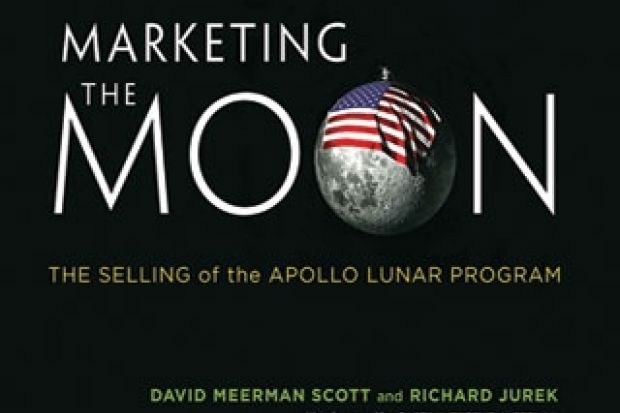Martin Cohen, editor of The Philosopher, is reading Marketing the Moon: The Selling of the Apollo Lunar Program (MIT Press, 2014) by David Meerman Scott and Richard Jurek. “Here’s a book that really ought to have been written long ago, because the lunar programme was as much a triumph of marketing as of science. I remember watching the first landings on TV and some of the magic has always remained with me. What a delight to find a book full of unexpected details and background stories.”

Jonathan Eaton, research and engagement manager, HE Directorate, Newcastle College, is reading Ben Shephard’s Headhunters: The Search for a Science of the Mind (Bodley Head, 2014). “A stimulating intellectual biography of a group of scholars who had a profound impact on neuroscience before, during and after the First World War. Although they are mostly remembered for their involvement in the treatment of ‘shellshock’ and related disorders, Shephard proves decisively that William Rivers, Grafton Elliot Smith, Charles Myers and William McDougall contributed to disciplines including archaeology and anthropology.”

Judie Newman, professor of American studies, University of Nottingham, is reading Lily King’s Euphoria (Atlantic Monthly Press, 2014). “King takes her inspiration from the months spent in New Guinea in 1933 by three competitive anthropologists: Margaret Mead, her second husband Reo Fortune and her soon-to be third husband Gregory Bateson (a triangle also haunted by Mead’s relationship with Ruth Benedict). She creates a compelling fiction, rich in ideas but richer still in narrative invention, bearing out its epigraph from Benedict, that ‘Experience, contrary to common belief, is mostly imagination’.”

A. W. Purdue, visiting professor in history, University of Northumbria, is reading Jeremy Paxman’s Great Britain’s Great War (Penguin, 2013). “How refreshing to read a book that gets under the skin of the Britain that fought the First World War rather than bringing all the prejudices of today to a shallow attempt at empathy. Britain in 1914 was a remarkable nation and the First World War, Paxman asserts, is ‘the great punctuation mark in British history’, dividing great from ordinary Britain. In a vivid concluding sentence, he remarks that the nation has been conducting, ever since, a ‘form of seance’ in an attempt to recapture a Britain that disappeared because of the war.”

Sharon Wheeler, senior lecturer in journalism, University of Portsmouth, is reading David Walsh’s Inside Team Sky (Simon & Schuster, 2014). “Walsh was the tenacious journalist who exposed Lance Armstrong as a drug-taking cheat. The abuse he suffered in doing so turned him off cycling, so it was nine years before he returned to the Tour de France – this time as an insider at the invitation of Team Sky. He’s still asking tough questions as the shadow of doping hangs over the achievements of Bradley Wiggins and Chris Froome.”
Register to continue
Why register?
- Registration is free and only takes a moment
- Once registered, you can read 3 articles a month
- Sign up for our newsletter
Subscribe
Or subscribe for unlimited access to:
- Unlimited access to news, views, insights & reviews
- Digital editions
- Digital access to THE’s university and college rankings analysis
Already registered or a current subscriber? Login

